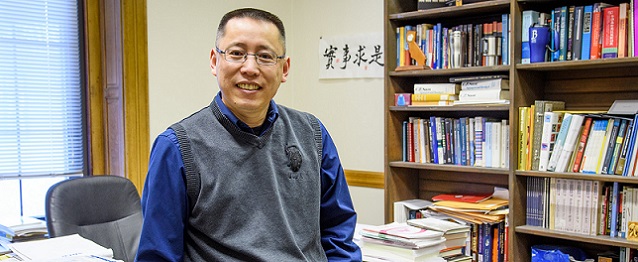Economics
Document Type
Article
Abstract
While research suggests that pollinator decline is linked with agricultural practices, it is unclear whether farmers share this view and adapt management to promote pollinators based on their understanding of these threats. To address these issues, we surveyed farmers of pollinator-dependent cucurbit crops across four states in the Midwest, USA. We grouped farmers by their perceptions of pollinator declines and routes of pesticide exposure and used statistical models to evaluate if farmers manage pests and pollinators based on these perceptions. Out of 93 completed surveys, 39% of farmers believed pollinators were in decline. When grouped, 17% of farmers were classified as proponents, ranking (on a 1–5 Likert scale) the factors mediating pesticide exposure and pollinator declines as important or highly important. For comparison, 44 and 39% of farmers were classified as neutral or skeptical, respectively, of these same factors. Compared to the neutral and skeptic groups, proponents were on average younger, had fewer years farming but more years in family farming, and were more dependent on income from outside the farming system. Proponents also on average reported smaller farms, higher pest richness, more land in cucurbit production, and greater richness of crops that are not pollinator dependent, when compared to the neutrals and skeptics. We did not find pest and pollinator management to be related to farmer perceptions of pollinator decline or routes of pesticide exposure, but farmers classified as pollinator “proponents” were more likely to indicate participation in future pollinator habitat restoration programs. Rather, management strategies were better explained by on-farm environmental conditions (e.g., pest richness, farm size, number of pollinator dependent crops) and economic factors (e.g., sources of income). Generally, our research shows that farmers who perceive pollinator threats may not be using pollinator supportive practices. Thus, while some farmers believe in pollinator declines, there remains a need to connect this knowledge with on-farm practices.
Publication Title
Frontiers in Sustainable Food Systems
Publication Date
8-2021
Volume
5
ISSN
2571-581X
DOI
10.3389/fsufs.2021.672981
Keywords
integrated pest management, perceptions of pollinators, pesticide use, pollination strategies, pollinator-dependent crops, university extension, wild bee pollinators
Repository Citation
Bloom, Elias H.; Bauer, Dana Marie; Kaminski, Abigail; Kaplan, Ian; and Szendrei, Zsofia, "Socioecological Factors and Farmer Perceptions Impacting Pesticide Use and Pollinator Conservation on Cucurbit Farms" (2021). Economics. 228.
https://commons.clarku.edu/faculty_economics/228
Creative Commons License

This work is licensed under a Creative Commons Attribution 4.0 International License.
Copyright Conditions
Bloom, E. H., Bauer, D. M., Kaminski, A., Kaplan, I., & Szendrei, Z. (2021). Socioecological factors and farmer perceptions impacting pesticide use and pollinator conservation on cucurbit farms. Frontiers in Sustainable Food Systems, 5, 672981. https://doi.org/10.3389/fsufs.2021.672981



